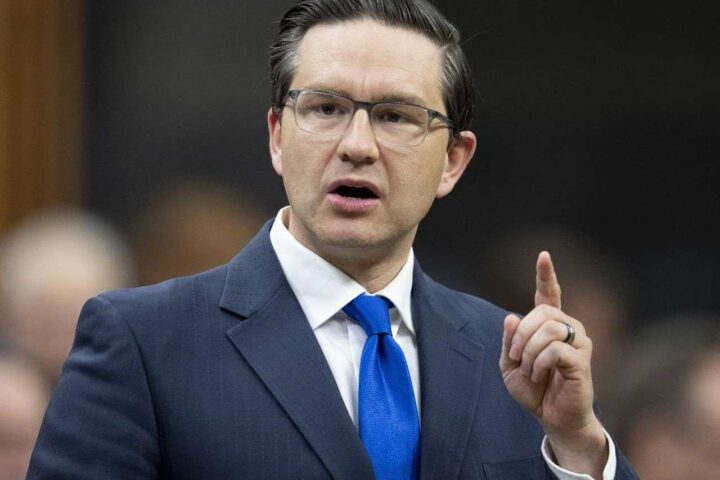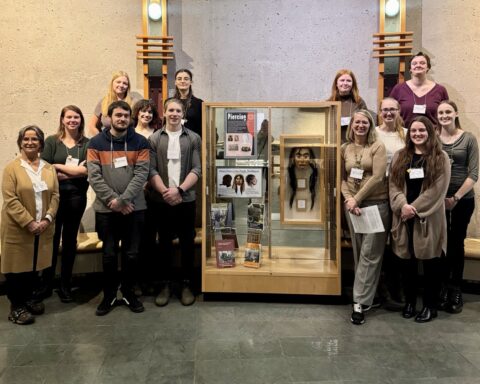I am very grateful to attend UNBC. I received my undergraduate degree from the university and am currently working towards my master’s. Throughout my time here, I have met many wonderful people: passionate lecturers, dedicated students, and talented researchers. I have been helped by countless staff at UNBC, who do an excellent job running everything from food services to financial aid. We truly have fantastic people in all departments of the university. Well, all except one.
UNBC Parking Services leaves an unsightly scar on an otherwise beautiful institution. Ironically, they brand themselves as Parking “Services” when what they do is surely anything but a service to the students and staff at the school. I propose rebranding UNBC Parking Services to UNBC Parking Disservices, as I believe they are a disservice and a disgrace to the university.
Now, I do realize that the employees of Parking Disservices have a job to do, and I concede that some very well may be nice people. Most of my resentment is directed towards the establishment of UNBC Parking Disservices. However, the employees are in the business of enforcing the wicked rules, and are unfortunately a critical part of the organization.
The Parking Disservice Officers, or PDOs, dress professionally in tucked-in white dress shirts and shiny black shoes. Fitting it is that their uniforms resemble those in law enforcement positions, as the tactics they use to enforce their corrupt agenda are not unlike those we might expect from abusive totalitarian regimes. This may sound like a bold claim – surely the PDOs, as nasty as they may be, cannot be compared with totalitarian dictators? Well, maybe not, and I certainly do not wish to make light of the experiences of those who have lived under totalitarianism. But the methods used by the PDO’s are a definite nod to those we have seen from oppressive regimes: coercion, intimidation, and extortion. Totalitarianism is defined by dictionary.com as “of or relating to a centralized government that does not tolerate parties of differing opinion and that exercises dictatorial control over many aspects of life”. UNBC Parking Disservices has developed a monopoly over the available parking on and around campus and uses totalitarian methods to suppress any kind of competition or contention that may arise.
When I started attending UNBC, there was a pull-out on the west of University Hill near the bridge, which proved to be a popular parking spot for those who did not wish to pay for parking. This allowed a level of individual freedom: people who wanted a comfortable parking spot close to campus could park in any of the parking lots (for a fee), and those who did not wish to pay could still access the campus, albeit with a walk through the snow and a less desirable parking spot in the mud. Then one day, without warning, cement barriers were erected at the entrance to this space. These barriers prevent anyone from accessing this alternative parking option, and force people to use the UNBC parking lots. This of course, entails shelling out more money or risking being booted by the rotten PDOs. While I do not have evidence that Parking Disservices was solely accountable for the erection of these cement barriers, I would be surprised to learn that their influence wasn’t at least partially responsible for this action. This is an example of UNBC Parking Disservices abusing their power to quash creativity and innovation among people looking to save money on parking.
The PDOs have little interest in making parking a pleasant experience for students at UNBC. Throughout the semester, UNBC’s parking lots inevitably get filled up. It is common to see dozens of cars circling the lots, with students frantically trying to find parking spots minutes before their classes begin. There is an overflow lot outside the Teaching & Learning Building, composed of dirt and mud and filled with large potholes, which serves as a last resort for students unable to find parking. Surely this dirt lot, in an undesirable location and ripe with opportunity for bottoming out vehicles, should be free to park in? Nope. Signage makes it clear that even students who park in this dirt lot are not exempt from punishment, and must pay the same rates for parking as people who are parked in a convenient and comfortable spot.
Alright, well what if you arrive on campus with the intent to pay for parking, but due to a system malfunction, the parking payment machines are not accepting credit cards? The PDOs can go for a few hours without the need to line their pockets, while they work to fix the machines, right? Shockingly, the answer is no. On one occasion when the credit card function of the parking payment machines was not working, I saw a sign from the PDOs encouraging students to go to an ATM to withdraw cash, then ask the cashier’s office to break these large cash bills into coins, to make suitable change to deposit in the parking payment machines. What a ridiculous situation. How is a student, running late for class, to be expected to waste time figuring out how to find spare change due to ineptitude and greed on the part of the PDOs?
Even when students are willing to pay for parking, the PDOs do not make it convenient. When you go to pay for parking at a parking payment machine, a list of options appears, prompting you to select whether you want to pay for 1.5 hours, 3 hours, 4.5 hours, 8 hours, or 12 hours. About two years ago, UNBC Parking Disservices infamously removed the 8-hour payment option. This was a direct slap in the face to many university employees who regularly worked 8-hour shifts, forcing them to pay every day for an additional 4 hours of parking they could never use. Perhaps due to backlash, the PDOs recently reinstated the 8-hour option. Hurrah, we once again have the privilege of choosing a convenient parking permit. Although with the PDOs, there are only ever two real choices: give us your money now, or take the boot and give us your money later.
Those who stand up to the corrupt regime of the PDOs by refusing to pay for parking are met with harsh and vicious punishments. It is well known that after two unpaid tickets, the PDOs will put a boot on your vehicle, and that you are unable to graduate if any outstanding parking fines exist on your student record. What is less well known is that the PDOs made a deal with ICBC a few years ago to track information on all vehicles entering their lots. Now, I have heard the PDOs can trace your name to a vehicle, sending parking fines your way even if you do not attend UNBC (although I do not have direct evidence to support this claim). Further, if you happen to be a student, the PDOs can find you from your license plate number and slap fines onto your account.
Indeed, the PDOs have demonstrated that they are willing to go to great lengths to cause misery and frustration. The most recent time I received a boot on my car, it was parked beside a service road away from campus, without any “no parking” sign visible in the nearby proximity. Yet, the PDOs drove out of their way, at 9pm on a Sunday night in the middle of winter, to put a boot on my 1998 Honda Civic. When I confronted them about there being no “no parking” sign where I was parked, they smugly informed me that there was a “no parking” sign situated further down the road. However, I did not drive past this sign to arrive at the spot I was parked. The PDOs did not care, and grew increasingly belligerent and hostile as I tried to plead my case. I was forced to pay $120 worth of fines (which, incidentally, required going to an ATM and paying more money to withdraw the amount in cash, since the PDOs refused to accept debit or credit card payments). Following this, I trudged from the university through the snow in -20°C weather back to my car, exhausted and hoping to get some sleep before my midterm the next morning. Weekends, holidays, evenings. It makes no difference to the vile PDOs.
Some might argue that if I don’t want to pay for parking, I should take public transit to campus. In bigger cities, this may be a viable option, as public transit covers a wide area of the city. Buses or trains arrive every 10 minutes. However, in medium sized cities with lower population densities such as Prince George, public transit covers a smaller area of the city, and it is not uncommon for buses to arrive only once every hour. I will give credit where it is due – I have used the bus system in Prince George many times, and have found it to be a good solution for getting to UNBC. However, I live near the bottom of University Hill, and am fortunate to be on a direct bus route with no transfers. Those who live far from the university and do have the option of taking public transit are often plagued with multiple bus transfers and convoluted routes, which result in impractical transit times for residents of Prince George who are accustomed to being able to drive to their destination in a relatively short amount of time. Indeed, the people of Prince George are used to driving – according to townfolio.co, 83.6% of people in Prince George drive vehicles to work, compared to just 45.4% of people in Vancouver. While public transit may work for some students and staff at UNBC, driving is the most practical and effective option for many people.
Further, when I visit metropolitan cities like Vancouver, I expect to have to pay for parking almost anywhere I go. The city is much larger and more densely populated than Prince George, and the cultural norm is that pay parking is required in many locations. Conversely, in smaller cities like Prince George, there are some locations which require pay parking, but the cultural norm of the city is that pay parking is generally not necessary. Creative drivers in Prince George can usually find free parking spots relatively close to their destination. This is why pay parking at UNBC is a particularly cruel and unusual punishment: it is not something we are accustomed to as residents of Prince George, and due to the geographic isolation of the university, it is difficult to find free parking alternatives close to campus.
Another common argument I hear from PDO apologists, particularly those who have come from other universities, is that parking at UNBC is quite cheap compared to other schools and thus I should be grateful for the relatively affordable parking “options”. Yet when prompted, these same people are quick to agree that, while Canada is a well-developed country relative to many other areas of the world, we should not become complacent while injustices are still prevalent in our nation. I would echo this sentiment. Surely apathy is not an appropriate response towards tyranny just because others have it worse! Instead, we should strive to be leaders in establishing a new and fair parking model in which democracy is maintained.
Unfortunately, another consequence of the monopolization of parking by UNBC Parking Disservices is an inequitable distribution of parking punishment for students and staff at UNBC. People who are privileged to be able to park some distance away from campus and walk, or bike to campus from home, may have a way to avoid the PDOs unscathed. However, people who feel uncomfortable or are unable to walk long distances suffer inequitably, as they have little option other than to pull out their wallets and hand their money to the greedy PDOs. Fortunately, UNBC does offer free parking for people with registered disabilities, which is certainly a step in the right direction. Nevertheless, this does not solve the issue of inequitable parking punishment. People who are physically able to walk but feel vulnerable walking long distances alone, particularly at night, are at the mercy of the PDOs. While UNBC’s safe walk program is a good option for people to feel more secure walking to their destination on campus, the only viable free parking options are not on campus territory. UNBC Parking Disservices ruthlessly crushes any attempts to park freely, and this affects students in an inequitable fashion.
We have established that UNBC Parking Disservices is very effective at extorting money from students who are already paying large sums in tuition fees. But just how much money are they really making? Currently, over 3500 students attend UNBC. Let’s say that 2500 of them drive to campus, and of these 2500 only 1500 regularly pay for parking. Imagine the students who are paying for parking are parked on campus for an average of 20 hours a week, spending $7.25 per week on parking. I feel that this is a conservative estimate. In just one week, the PDOs are raking in $10,875; in one month, $43,500; in one semester, $174,000 (this is without including any money from parking fines). So where does this money go? Certainly not to the maintenance of the dirt lot. Not to the salaries of the PDOs either, as they need to get paid irrespective of whether anyone pays for parking. Perhaps some money is needed to plow snow out of the lots during the wintertime, to sweep dirt from the lots or sprinkle gravel onto the lots. But do you think these costs amount to anywhere near $174,000 per semester? I have my doubts. Perhaps some of it goes to people like our former UNBC President Dan Weeks, who was making over $300,000 per year before his untimely resignation, according to UNBC’s Executive Compensation Disclosure. I’m sure we’d all agree that he deserves the money more than we do.
I am not alone in my disdain for the PDOs: the UNBC Parking Memes Instagram page, which satirically berated the institution’s parking system, had over 500 followers before the page was taken down. My UNBC friends all have unique stories about their altercations with the PDOs, and I find that complaining about pay parking makes a great conversation starter with almost anyone on campus. If you see me around the university and feel like making a new friend, I would love to hear your stories of grievances with the PDOs. Let’s take the money we saved by refusing to pay for parking and spend it on coffee instead.
Realistically, making any changes to parking policies at UNBC will require navigating excessive red tape. My aim in this article is to raise awareness and start a conversation about the injustices of the UNBC pay parking system. I hope that we will one day see the fall of the PDOs, and that students and staff at UNBC will be able to park freely. Until that day, I will be carpooling to school, parking on the hill, taking the bus, and biking to campus. Oh, and when I do park in the parking lots, I won’t be paying a dime.
Or why wait? We could all mutually agree to stop paying for parking tomorrow. I doubt they stock 3500 car boots.








